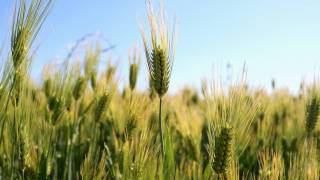Gluten and Celiac Patients Fearful of Vaccines

A new Internet survey of people with celiac disease (CD) and non-celiac gluten sensitivity (NCGS), revealed that many CD patients and those with NCGS, have been avoiding vaccines because of a misconception.
These individuals were found to believe vaccines contain unsafe levels of gluten.
These Celiac Disease Center researchers believe a lack of reliable information regarding the gluten-free status of vaccines may have lead to this false belief.
Notably, gluten sensitive patients were more likely than those with celiac disease to doubt vaccine safety and report other beliefs that conflict with conventional medical science.
This new online study found that after adjusting for age and gender, those with NCGS (41.3%) were more likely than those with CD (26.4%) to disagree with the statement that “vaccines are safe for people with celiac disease.
Moreover, people with NCGS were more likely to decline vaccination when offered 30.9% vs. 24.2%.
Additionally, this study reported a significant number of respondents declined the flu vaccine, fearful it may contain gluten.
Previous studies showed that celiac patients had the same immunological response to vaccines as the general population.
Except for vaccines against hepatitis B virus (HBV).
It has been reported that the response rate to HBV vaccination in CD-infected individuals is lower than in the general population.
Recently, the FDA issued a draft guidance on Gluten in Drug Products and Associated Labeling Recommendations. The draft guidance provides recommendations on how certain oral drug products should be labeled regarding gluten, a matter of interest to individuals with celiac disease.
The majority of orally administered drug products either contain no gluten or virtually no gluten, reports the FDA.
The FDA uses the term “gluten” in its guidance on oral drug products as meaning certain proteins found in wheat, barley, and rye or their crossbred hybrids that lead to symptoms associated with celiac disease.
Celiac disease, also known as celiac sprue, is an immune-based reaction to dietary gluten that primarily affects the small intestine in susceptible individuals; unmanaged celiac disease can lead to serious health complications.
A study found that the prevalence of Celiac Disease in the United States was 0.71%, similar to that found in several European countries. CD was rare among minority groups but affected 1% of non-Hispanic whites or nearly 3 million people in the United States.
At this time, the best treatment for celiac disease is adherence to a gluten-free diet, says the FDA.
Our Trust Standards: Medical Advisory Committee
- Skepticism Regarding Vaccine and Gluten-Free Food Safety Among Patients with Celiac Disease and Non-celiac Gluten Sensitivity
- Hepatitis B vaccine in celiac disease: Yesterday, today and tomorrow
- Celiac Disease
- The Prevalence of Celiac Disease in the United States
- Medications and Gluten
- Socioeconomic vs Health-related Factors Associated With Google Searches for Gluten-Free Diet
- What is Celiac Disease?




